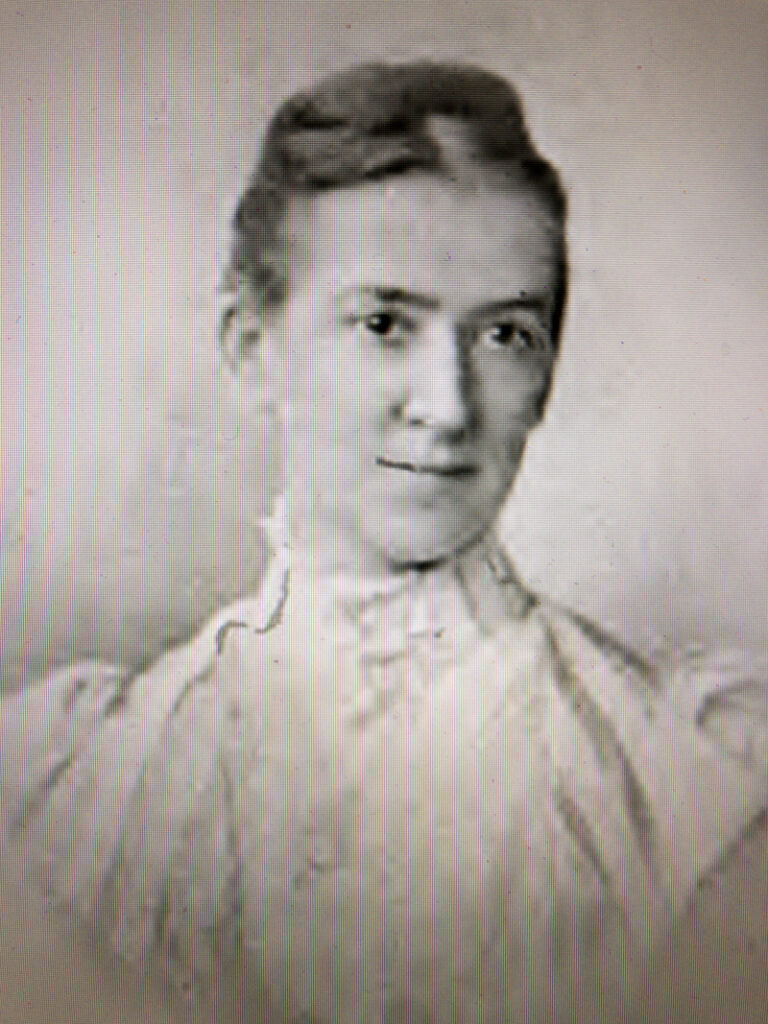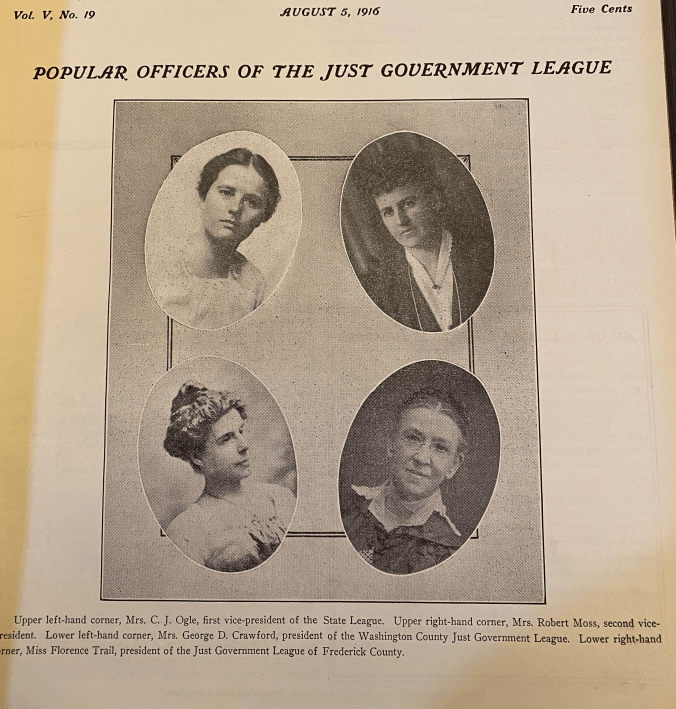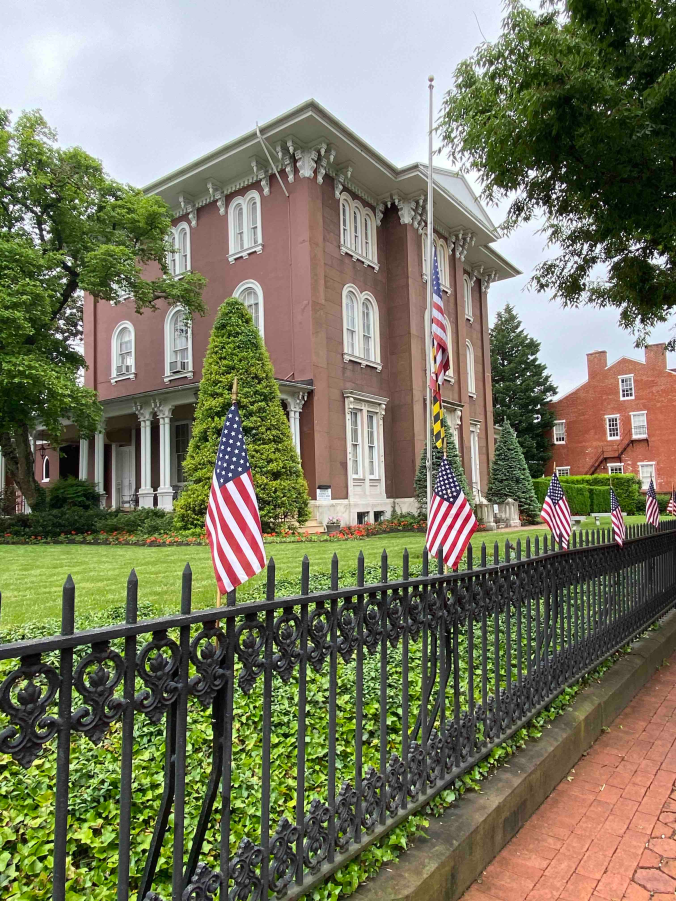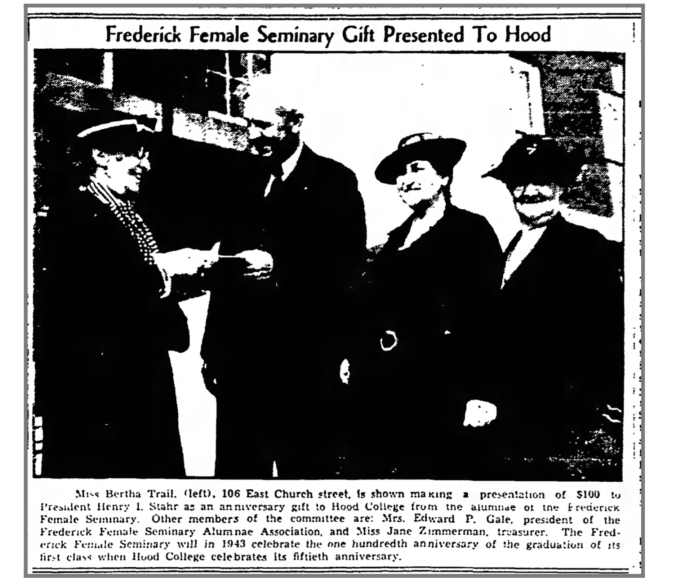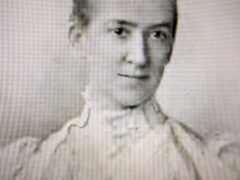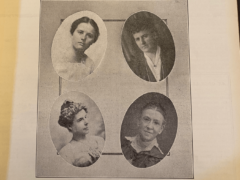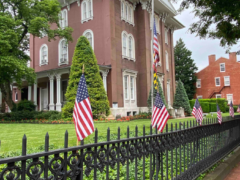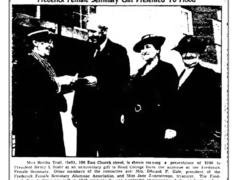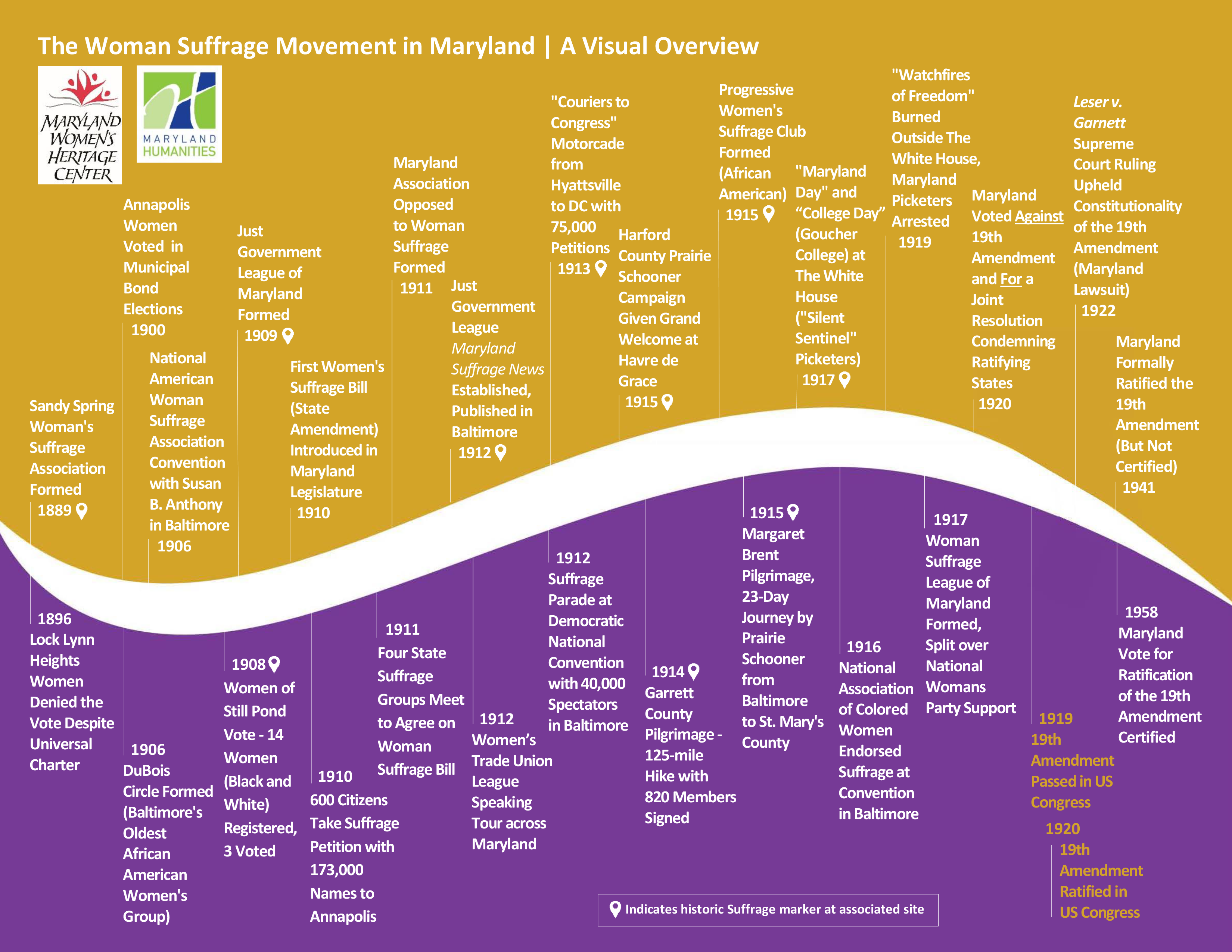
Sisters for suffrage in Frederick
by Amy Rosenkrans, PhD, MWHC Board Member
Listen to this biography read by Dr. Rosenkrans at https://ballotandbeyond.org/florence-bertha-trail-sisters-in-the-struggle/
“Never have I been prouder of my sex and seldom have I heard oratory of greater power…I felt that my cup of happiness was full and almost wept with joy as I realized that I was taking part in a mighty revolution, the dawning of a new and better day for all.” The News (Frederick, Maryland), January 31, 1914
These words were written by Florence Trail after she participated in a rally during a 1914 Annapolis lobbying trip, sponsored by the Just Government League, Maryland’s largest woman suffrage organization. This was lofty praise from a highly educated woman who had travelled the world as an educator, author, and musician.
Florence Trail (1854-1944)
Florence Trail was born in Frederick, MD in 1854. At the age of 10, she was stricken by Typhoid Fever, leaving her hearing severely impaired. Despite her disability, she graduated first in her class from the Frederick Female Seminary in 1872. After attending the Mount Vernon Institute and the Peabody Conservatory in Baltimore, Florence travelled throughout Europe where she used her experiences to write a number of books. Upon returning to the United States, she taught in schools in Kentucky, North Carolina, and New York City. Trail eventually settled back in her hometown of Frederick where she continued to write books, perform music, and serve on numerous committees.
After attending a 1910 meeting where she listened to Edith Houghton Hooker, the president of the Just Government League, Florence decided to dedicate her life to the suffrage cause. She did this ably, by helping found a chapter of the Just Government League in her hometown, Frederick, and by serving as its first president. Although Florence was the better known of the family, her mother Ariana, sister Bertha and niece, Grace, all played significant roles in the Frederick Suffrage Movement.
Florence, along with her mother and sister Bertha, were elected to the Board of Directors for the Frederick County Just Government League (JGL) in 1911. The directors took turns hosting the monthly meetings, many of which took place at the Woman’s College, later Hood College. At those meetings, one of the sisters would often give a lecture on pertinent suffrage topics. When the Frederick chapter changed their governing structure to a more traditional format of officers, Florence was elected President. As such, she chaired most meetings and even hosted them at her elegant home.
In addition to chairing meetings and working to garner support in Frederick, both Florence and Bertha participated in suffrage activities at the state and national levels. Florence represented the county at the 1913 Suffrage March in Washington DC, held on the eve of Woodrow Wilson’s presidential inauguration, and at state Just Government League conventions. In 1915, she was selected to represent Maryland at the National American Woman Suffrage Association Convention. Bertha ended up attending the meeting in her stead and brought back information about the convention to the Frederick chapter as well as to the Frederick Female Seminary Alumni Association Meeting, of which both she and Florence were members.
When the Frederick County JGL chapter dissolved in 1917 and became the Frederick County Woman Suffrage League, Florence was once again elected president. The next year, she was elected to an office in the Maryland Woman Suffrage League. Despite her state level position, Florence continued to support the movement in Frederick, planning and hosting meetings such as a 1919 Suffrage Rally on the Frederick courthouse steps.
The Trail Sisters worked diligently to win the vote for Maryland’s women. Their writing, speeches and constant activism did not end when the battle was won. Both sisters continued to be active in the community. Bertha was elected President of the Frederick County Republican Club in 1920 where she spearheaded the registration of new women voters.

